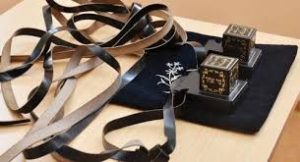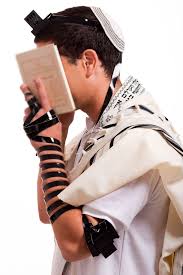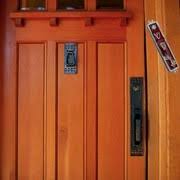Moses reminds the people of the fact that he, Moses, is not allowed to enter the land and all those who rebelled against God have died off, leaving this generation to take possession. He assigns three cities as a City of Refuge for the tribes of Gad, Reuben, and Manasseh in the land east of the Jordan.
If you prefer to watch a video, click on this link: Watch the video.
Moses goes on to remind the people of how God chose them to be an example of a people who live according to fair and wise laws so that all the other people can learn from their example. He tells them God never appeared in any form to them, so they shouldn’t make any form of anything and worship it. If they live according to the laws God gave them, which Moses has taught them, then they and their children will live long in the land; however, if they worship any other god they will be ejected from the land and scattered throughout the earth.
Moses reviews the Ten Commandments, which he received in the presence of the people, and reminds them (there’s a lot of reminding in this book) of how they were afraid to hear God’s voice and told Moses to be their Intercessor, which God said was a good thing for them to do.
Moses gives us the Shema and V’ahafta prayers.
Moses tells the people when they are in the land to utterly destroy the pagan idol worshipers, as well as the symbols and altars of their gods, and not to intermix with the indigenous people in any way.
Well, what have we here? We have the Shema, the watchword of the Jewish faith, which is first and foremost the definitive declaration of the one true God and of Monotheism.
We also have the V’ahavta (“and you shall love”) prayer, which is recited after the Shema at every Jewish service that is held, everywhere in the world.
Deuteronomy is a book of retelling, of reminding, and of warning. These two prayers, however, are unique to this book, alone. Just about everything else in Deuteronomy is referencing what happened previously in the Torah, but not these two prayers. Perhaps there is a reason for that?
If you ask me, and even if you don’t, I will tell you my thinking on this (after all, it is my ministry): these two prayers are the pathway to salvation. They tell us that the LORD, Y-H-V-H is our God and the only God. We must love him with everything we are- heart, mind, and soul- obeying and teaching our children to obey his commandments. And, to ensure these commandments never are forgotten, we must bind them on our hands and before our eyes so that we are reminded of them when we go to sleep and when we wake up, and also place them on the gateposts of our house and on our doors so we see them going out and coming in. By doing these things we will never forget them, and (hopefully) by being constantly reminded of them we will do them. And if we do them, we will be righteous in the eyes of the Lord.
Now, I am sure many of you are thinking, “We aren’t saved by works but by faith, so how can Steve say these prayers are the pathway to salvation?” That is a good question, and my answer is that, at that time, the only pathway to salvation was through obedience to God’s instructions, which Moses is reminding them of now. If they learn nothing else from all that Moses is saying, by remembering the Shema and the V’ahavta they will know all they need to know to stay on the proper path.
The way we have placed God’s instructions before our eyes, on our hands, and on the doorposts of our house and gates is through the use of the Tefillin and a Mezuzah. For those who may not be familiar with these things, let me finish today’s message with a little Jewish 101 lesson about the Tefillin and the Mezuzah.
The Tefillin (also called Phylacteries) are little black boxes with prayers inside that are tied to the left arm (which is the arm closest to the heart) and on the forehead, with the box on the bicep and between the eyes on the forehead. The strap is wrapped on the arm 7 times, and around the hand in the shape of the Hebrew letter Shin (“S”), to represent Shaddai, a name for God. The Tefillin contain four chambers, each chamber containing a prayer. The prayers inside are the following:
1–2. Kadesh(Exodus 13:1–10) and Vehayah ki yeviacha (Exodus 13:11–16): These describe the duty of the Jewish people to always remember the redemption from Egyptian bondage, and the obligation of every Jew to educate his children about this and about G‑d’s commandments.
3. Shema(Deut. 6:4–9): Pronounces the unity of the one God, and commands us to love and fear Him.
4. Vehayah (Deut. 11:13–21): Focuses on God’s assurance to us of reward that will follow our observance of the Torah’s mitzvahs.


The Mezuzah is nailed to the door jamb on the right side as you enter, and the top is angled towards the house. Inside the Mezuzah is a scroll with the Shema written on it.

These two articles are essential things for every Torah observant Jew to own, although you usually only find the Orthodox and Chasidic Jews using the tefillin. However, the mezuzah is often found on every Jewish home, even those who are not very observant. It seems to be a tie to our heritage that isn’t easily broken (thank God for that!)
These symbols of obedience can remind us of one of two things: they will remind us that we are obedient, or they will remind us of how we haven’t been obedient. Either way, the one good thing is that they remind us of what we should be doing, and so long as God is not out of sight, he won’t ever be that far out of mind. So even those who have the mezuzah on their doors, which to them is nothing more than a decoration, they are still, despite themselves, being reminded of God and his commandments which should be followed, And who knows? Maybe one day they will suddenly come to realize how far short they have come to what they should be doing, do T’shuvah (turning from sin), and repent of their apostasy.
From my lips to God’s ears! Amen and Amen!
Thank you for being here and please share these messages, subscribe and (maybe) check out my books.
Until next time, L’hitraot and Shabbat Shalom!
